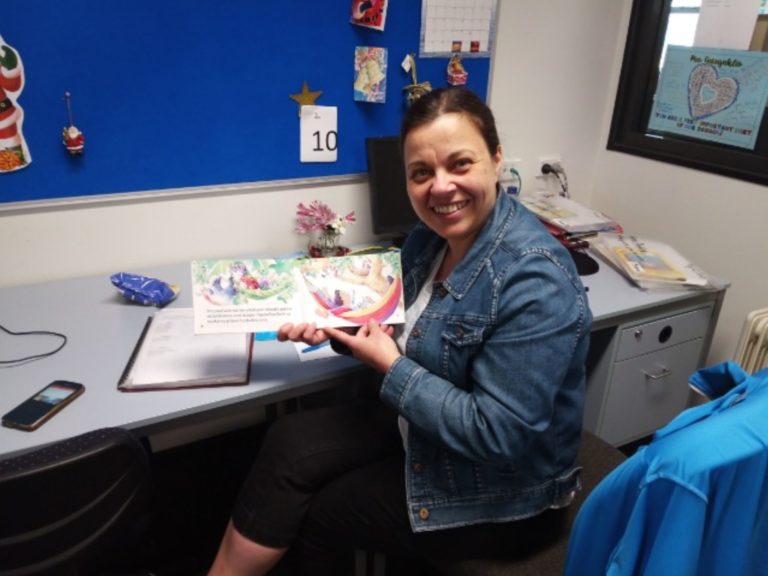Experts from different fields have been telling us that life won’t be the same after the COVID-19 pandemic, and the same applies to education. We asked experts in the field of education to share their experiences and answer the following question: How has education benefited, if at all, from our COVID-19 experience?
Here’s what they had to say:
MANOS TZIMBRAGOS
Each period of crisis is, undoubtedly, a unique opportunity to reflect and redefine goals and values. The sudden imposition of distance learning as a result of COVID-19 has shown, among other things, the importance of technology, the decisive role of the school and teacher, as well as any inherent flaws in the system.
Technology has proven that it can play an important role, contributing towards the smooth continuation of the learning process during this period of home confinement. Programmes and modern apps, and asynchronous communication and learning, maintained the act of learning.
It was confirmed, however, that technology cannot fully replace the physical presence and engagement of students and teachers, thus highlighting the complex and essential role of the school which functions not only as a place of learning but also as a means of socialisation as well as moral and psychological support.
Our recent experience has also shown us how flexible and effective we need to and have to be as educators, students and parents when handling emergency situations and dealing directly with new circumstances, while recognising the role of the teacher as a coordinator of the learning process and the students as being responsible for their own learning. The experience also highlighted the need for close cooperation between family and school, as well as for the redefinition of the goals of the educational system.
In closing, we should stress that education has benefited from our recent experience as it showcased the following important findings: the role of technology as a method of learning, the recognition of the important role played by the teacher and school, the role of the student in handling their own learning, but also the need for the educator to adopt new programs and practices.
Manos Tzimbragos is the Education officer and Principal of the Greek Community of Melbourne’s Language and Culture Schools with over 1,200 students who attend campuses around Melbourne to learn Modern Greek and Ancient Greek.

READ MORE: Confusion is king as the Commonwealth and Teachers’ union go head-to-head on schools opening
MARIA GINDIDIS
As educators across all sectors, we have learned during our COVID-19 experience not to concentrate on the technology, but to deeply think about pedagogy and engagement. These are the tenets of both face-to-face or online teaching and learning.
The benefits of our COVID-19 experience is that we personalised learning. In fact, I am witnessing from my university faculty and my Greek community school Protypo, that online learning allowed struggling students to revisit resources like videos, revising and consolidating their learning. New, older and aspiring teachers all became students. We learnt to experiment and innovate. Our teachers during this time developed thoughtful, age-appropriate online programs.
Education had to adapt quickly, and whether mindset, disposition, or just resources, not everyone was able to make the switch successfully. Living in a small crowded apartment with multiple children and one piece of technology, how do you address needs and make way for learning? This pandemic has underscored inequities that can’t be ignored. I believe educators’ COVID-19 experiences have benefited education, we disrupted what we had and now will begin to build an improved education system. I also believe we have a greater appreciation for just how hard it is to teach—and how important and crucial investment in education is for our future.
Dr Maria Gindidis is currently a full time Senior Lecturer for Monash University. During COVID-19 she implemented a new online program as Chief Examiner of a core unit comprising of 571 students studying Teaching including 17 stranded in China. Also as Director of Protypo, a Greek Community School in Oakleigh, together with 18 teachers, she assisted with launching a fully online program, teaching Greek to over 540 pre-schoolers to VCE learners.

READ MORE: Teach your kids Greek… digitally
ANASTASIA KOUTSOUROUPAS
COVID-19 rocked our world in many ways! It forced us to rethink about our lives in general and of course our children’s education. Online remote learning became the new way of teaching and learning. Some parents embraced it, others loathed it. Nevertheless it proved to be a highly effective teaching tool that engaged many students. There is no doubt in my mind that online learning may well continue into the future causing a shift in the way education is delivered in Victoria.
I know parents now have a greater appreciation of how involved a teacher’s occupation is, the long hours dedicated to differentiated planning and the daily struggles and challenges to engage students and then support them in all areas of learning. I believe teachers and parents will now continue to work closely together post pandemic as parents now realise how important it is to be involved in their child’s learning. Parents have observed their child’s refusal to complete online learning tasks and hence have had time to reflect on why this may be occurring. Hopefully all parents will be empathetic towards teachers by honouring and respecting the work that we do.
Ana Koutsouroupas is a teacher of the Greek Bilingual Program at Lalor North Primary School
READ MORE: Lalor North Primary School students adapt to their online learning environment










